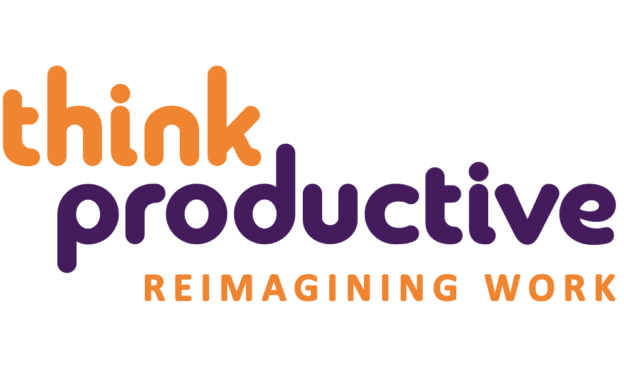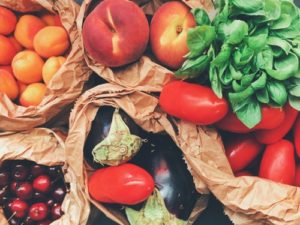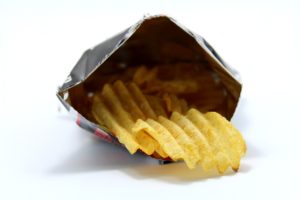5 Foods to Eat and 5 to Avoid for Better Sleep
Food plays a vital role in getting a good night’s sleep.
Graham Allcott talks about this in depth in his book Workfuel. Eating before bed might offer occasional relief , but isn’t a viable long-term strategy for good sleep.
For a better night’s sleep it is important to understand that humans are diurnal beings. We are not designed and built to eat at night.
Many of us use food as a sleep aid. We believe that we can relax using messengers like tryptophan, calcium, and magnesium that activate melatonin – the sleep hormone.
However, for healthy sleep, melatonin needs to bind with receptors in the pancreas to suppress the release of insulin. This is the hormone that balances glucose (sugar) in the blood. Eating before bed may seem to promote relaxation, but the insulin needed to balance blood sugar will prevent this binding from happening.
For melatonin to be effective insulin has to be absent to allow the brain’s hypothalamus to trigger several autonomic sleep processes, like fat burning and cell renewal. If insulin is present, sleep can occur but it’s not as stable or regenerative.
In other words to be “sleep friendly,” a diet needs to help you make energy and melatonin during the day. If you must eat after dark, chose foods that interfere the least with the natural sleep process.
5 Foods to Eat for Better Sleep
Local and Seasonal Food
When the sunlight in your food is the same as your environment, ATP production in your cell’s mitochondria is most effective at creating a chemical byproduct known as adenosine. It’s what your sleep clock measures to keep track of your need for sleep.
When the light in your food isn’t a match with your environment there is less ATP production, more inflammation, and less sleep.
An apple from your local farmer’s market results in more ATP production than an apple from a farmer’s market 500 miles north. So does an apple from a farmer’s market 2,000 miles away, if that market shares a similar latitude and was grown in a similar spectrum of sunlight.
Seafood
Life evolved from the sea, making DHA (fish oil) the most vital nutrient to circadian rhythm. DHA is plentiful in oysters, crustaceans and wild caught fish . It provides your brain the electricity it needs to make melatonin and transport it to your pineal gland for nighttime release.
Leafy Greens
Leafy greens contain great nutritional value. Even though they are technically a carbohydrate, which carries more glucose per gram, they have fewer calories. Unlike other carbs, their intake can help regulate glucose metabolism.
Sea Vegetables
One of the most nutrient dense foods, sea vegetables are rich in the sleep friendly minerals calcium and magnesium. They also contain iodine, which is great for lowering inflammation.
Healthy Fats
Fats have more calories per gram which is good because less becomes more. Healthy fats satisfy you faster and sustain you longer. They do this by stabilizing blood sugar and regulating insulin. Adding them to your last meal allows you to fast for several hours before sleep begins.
5 Foods to Avoid at Night for Better Sleep
Not all of these foods need to be scratched off your menu entirely. However, avoiding them, especially at night, will go a long way towards supporting a good night’s sleep.
Carbohydrates
Carbohydrates are especially bad at night because of the intense sunlight needed to grow them. The more sunlight food has, the more your brain will respond hormonally as if it is daytime.
For healthy consumption, try restricting carbohydrate intake from sunrise to a couple of hours before sunset.
Sweets
Sugar from sweets will spike sugar and insulin more than any other food. Eating larger meals, rather than snacking in between them, can help store glucose in the liver more efficiently. This will eliminate the blood sugar spikes that cause late night sugar cravings.
Tropical Fruit
While fruits like kiwis and bananas are often touted for their links to melatonin, they contain the most carbs and glucose of any fruit. Both the stimulating message from sunlight and blood sugar spikes can hinder sleep more than help it.
Nightshades
Although they can be very beneficial, nightshades contain alkaloids which can be extremely inflammatory. They also contain oxalic acid, which depletes the body of calcium, an important precursor to melatonin synthesis. Eliminating them for a period of time is a good idea until sleep improves.
Coffee
Its common knowledge that caffeine helps you feel alert by blocking the brain’s reception of adenosine. This tricks the brain into thinking you don’t need sleep.
Most advice suggests you cut coffee consumption after a certain time of day. Be aware that adenosine blockage caused by caffeine never dissipates completely, no matter what time you consume it.
It all starts in the Kitchen
Food plays an important role with sleep, sometimes more so than having a quality mattress at home. The role of food role is less direct. When food turns to energy, that energy output is measured by the sleep clock in the brain.
During the day try eating foods that easily turn into energy and help with melatonin production. If you must eat at night, eating healthy fats and avoiding carbs will set you up best for stable and regenerative sleep.
Now you know how to improve your sleep! Put all that new found energy into tackling your productivity by checking out our Attention Management workshops!
Sources
- https://jackkruse.com/why-do-we-sleep/
- https://www.ncbi.nlm.nih.gov/pubmed/19377888
- https://www.ncbi.nlm.nih.gov/pmc/articles/PMC4930144/
- https://www.ncbi.nlm.nih.gov/pmc/articles/PMC4079942/
- https://www2.mcdaniel.edu/Biology/botf99/herbnew/alkaloids.htm
- https://www.eurekalert.org/pub_releases/2016-03/r-bcc031416.php
- http://sleepeducation.org/news/2013/08/01/sleep-and-caffeine
- https://www.ncbi.nlm.nih.gov/pubmed/10479465
- https://www.sciencedaily.com/releases/2010/08/100819214607.htm
- https://www.nextavenue.org/foods-regulate-blood-sugar/
- https://jackkruse.com/brain-gut-6-epi-paleo-rx/
- https://www.ncbi.nlm.nih.gov/pubmed/27499509
- https://www.ncbi.nlm.nih.gov/pmc/articles/PMC4684129/


